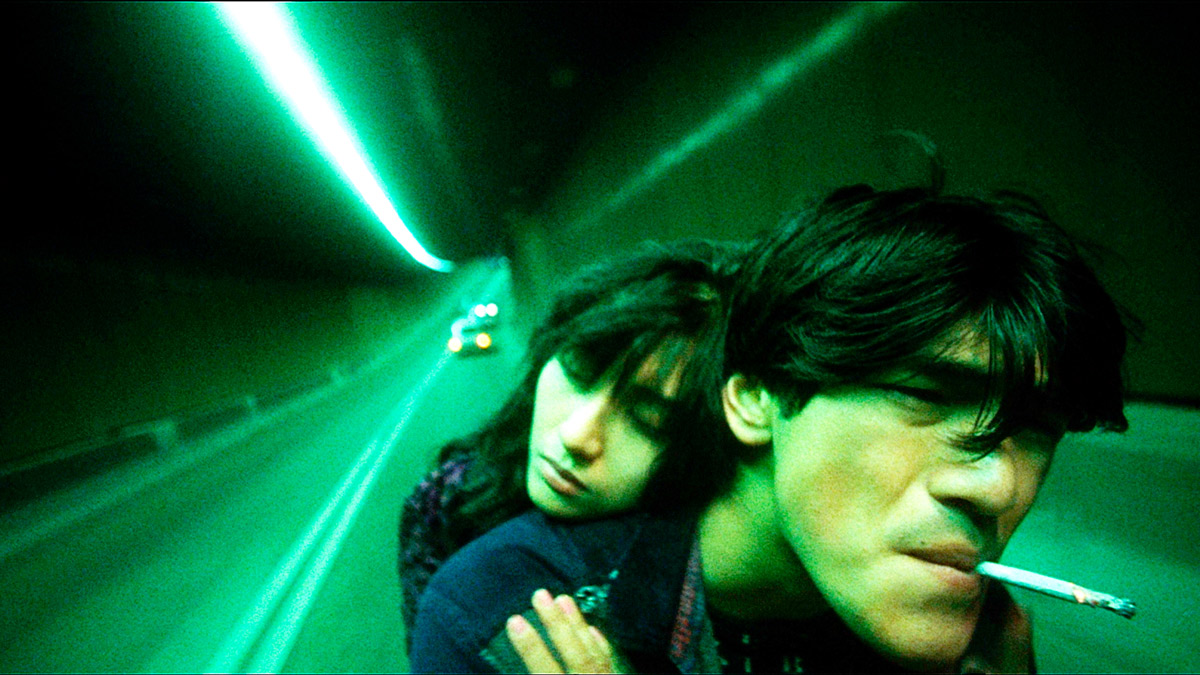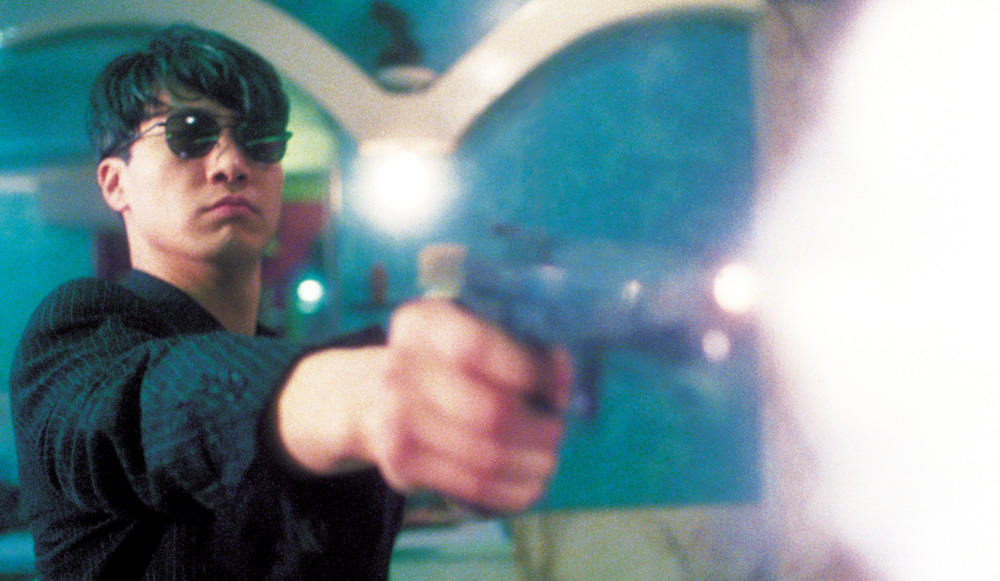
©1995, 2008 Block 2 Pictures Inc. All Rights Reserved.
``Fallen Angels'' Wong Kar-wai's depiction of sex and death during the transition period, ``Chungking Express'' sister edition
2022.04.14
Hong Kong at night, the smell of sex and death
The romance in `` Chungking Express '' is somewhat like a fairy tale, and because it is somewhat ungrounded, it exudes the brightness of fresh youth. The love affairs between detective Mo and the drug dealer, and between police officer No. 663 and Faye, are platonic, with almost no sexual undertones. Although there is a glossy flashback scene between Officer 663 and CA's ex-lover, it is an event in the past and is depicted as something they have already lost.
However, ``Fallen Angels,'' which depicts the dark side of Hong Kong at night, is filled with the scent of sex and death that was almost absent from `` The Chungking Express .'' The killer and the blonde woman easily overlap, and the agent indulges in masturbation in the room where the killer is not present. In the scene where Charlie and Mo are searching for a partner for his ex-girlfriend, the two beat up a sex doll as if it were their partner.
The violent scenes are the highlight of this film. When the killer pulls the trigger of his gun without hesitation, blood gushes from his victim's body, the glass of the store shatters, and sparks fly from the light bulb. An almost instantaneous event is stretched out into something much longer. The camera also shows the gruesome murder scene, where multiple lives were taken in an instant. Christopher Doyle's cinematography captures both the tension of violence and the breathtaking beauty. Although the touch is different, the brawl at the dim sum restaurant involving Mo and the heartbroken woman has a similar impact.

“Fallen Angels” ©1995, 2008 Block 2 Pictures Inc. All Rights Reserved.
I would like to make a rough hypothesis here. While `` Chungking Express '' dealt with ``time'', or more specifically, the past and future, through the romance between young people, ``Fallen Angels'' seems to have tried to deal with the present. While the love story depicted in " Chungking Express " progresses from the past to the present and ends with an opening to the future, the love story in "Fallen Angels" ends in the present (except for the last scene). Body. Instead, they use their bodies to run around the city, exchange lives, and engage in sexual acts. It's as if I'm confirming my current life at this moment. At the end of the movie, both characters leave this world.
The episode involving Mo, played by Kinjo, and the video camera, which is a bit unique in the play, may reveal other possibilities if you unravel it from the keywords of "life and death" and "time." Mo records as much as he can of his father, and at the end of the story, he rewinds the video and watches it, but it becomes clear that the time that has passed will never come back. The theme of the irreversibility of time, which would later be directly depicted in `` In the Mood for Love '' (2000) and `` 2046 '' (2004), was foreshadowed here.
Kar-wai is a filmmaker who has captured the atmosphere of the times he saw in his works by making romantic films. As I have previously pointed out, `` Chungking Express '' reveals the atmosphere of a city that is about to be handed over to Hong Kong, but ``Fallen Angels'' takes a different approach from that work, expressing the current instability and the irreversibility of time. It's starting to broil. Mo moved to Hong Kong at the age of five, which is exactly the same history as Kar-wai himself (with the difference that Mo was born in Taiwan and Kar-wai was born in Shanghai). There is a meaning beyond just nostalgia and sadness in filming videos that allow Mo to become immersed in them, and looking back at a time that will never return.
``Fallen Angels'' was born from `` Chungking Express '' and is a sister edition that reverses the story of the same work. However, some themes transcended this film and were inherited in subsequent works. In other words, this is a book that clearly shows that Wong Kar-wai's worldview was in a period of transition. Is it too harsh to say that it connects Part 1 and Part 2 of his filmography?
[References/Materials]
"Fallen Angels" DVD (bonus footage), Asmik Ace Entertainment
"Fallen Angels" Theater Program, Prenon Ash Co., Ltd., 1996
“Filmmakers [14] Wong Kar-wai” Kinema Junposha, 2001
Wong Kar-wai by Han Ong – BOMB Magazine
Text: Takatoshi Inagaki
Writer/editor/dramaturg. His writing activities span across fields such as movies, dramas, comics, theater, and art. Contributes to theater programs such as the movies ``Tenet'' and ``Joker,'' edits web media, edits exhibition catalogs, and appears on radio. Major stage works include dramaturg for PARCO's productions of ``Kengyo Yabuhara'', Tristone Entertainment's ``Shoujo Kamen'', prosthetic assistant for Kinoshita Kabuki's ``Tokaido Yotsuya Kaidan'', ``Sannin Kichizo'', ``Kanjincho'', and KUNIO's ``Greeks''. ”Literature.
"Fallen Angels"
Currently being distributed
©1995, 2008 Block 2 Pictures Inc. All Rights Reserved.

